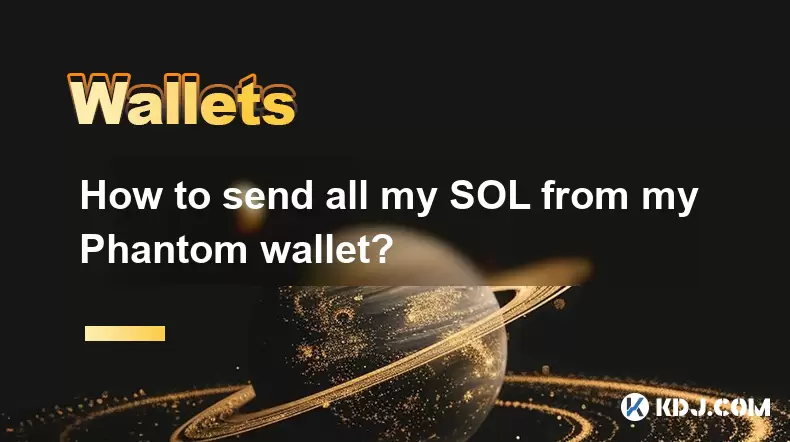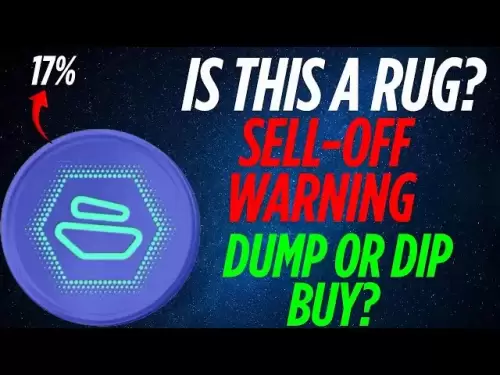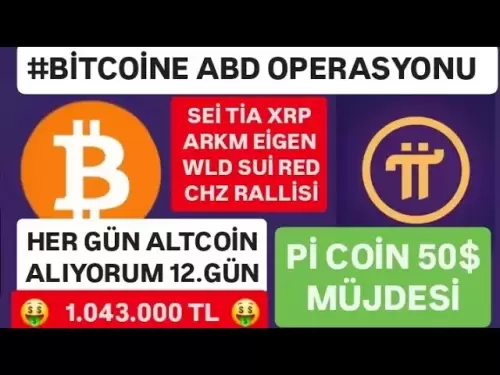-
 Bitcoin
Bitcoin $108,708.8110
0.60% -
 Ethereum
Ethereum $2,561.6057
1.91% -
 Tether USDt
Tether USDt $1.0001
-0.03% -
 XRP
XRP $2.2795
0.57% -
 BNB
BNB $662.2393
1.00% -
 Solana
Solana $153.1346
3.74% -
 USDC
USDC $1.0000
0.00% -
 TRON
TRON $0.2877
0.97% -
 Dogecoin
Dogecoin $0.1710
3.93% -
 Cardano
Cardano $0.5871
1.61% -
 Hyperliquid
Hyperliquid $39.6663
1.68% -
 Sui
Sui $2.9032
0.79% -
 Bitcoin Cash
Bitcoin Cash $496.1879
1.71% -
 Chainlink
Chainlink $13.5807
3.01% -
 UNUS SED LEO
UNUS SED LEO $9.0777
0.61% -
 Stellar
Stellar $0.2514
4.51% -
 Avalanche
Avalanche $18.1761
1.86% -
 Shiba Inu
Shiba Inu $0.0...01173
1.72% -
 Toncoin
Toncoin $2.8010
-4.23% -
 Hedera
Hedera $0.1594
3.21% -
 Litecoin
Litecoin $87.0257
-0.53% -
 Monero
Monero $319.1217
1.79% -
 Polkadot
Polkadot $3.3853
0.68% -
 Dai
Dai $0.9999
-0.01% -
 Ethena USDe
Ethena USDe $1.0003
0.02% -
 Bitget Token
Bitget Token $4.3420
-0.97% -
 Uniswap
Uniswap $7.3772
1.39% -
 Aave
Aave $286.6277
5.61% -
 Pepe
Pepe $0.0...09994
2.33% -
 Pi
Pi $0.4589
1.76%
How to reduce the transaction fee when transferring money through Ethereum wallet?
Minimize Ethereum gas fees by strategically timing transactions, optimizing data, batching transfers, using Layer-2 solutions, and employing gas price estimators; lower gas prices increase wait times.
Mar 24, 2025 at 12:00 am

How to Reduce Transaction Fees When Transferring Money Through an Ethereum Wallet?
Ethereum transaction fees, or gas fees, can be significantly high, sometimes outweighing the value of smaller transactions. Understanding the factors influencing these fees and employing various strategies can help minimize your costs. This article explores several methods to reduce Ethereum transaction fees.
Understanding Ethereum Gas Fees:
Ethereum's transaction fees are determined by two primary factors: gas price and gas limit. The gas price represents the amount of Ether (ETH) you're willing to pay per unit of gas. The gas limit sets an upper bound on the amount of computational work required to execute your transaction. A higher gas price generally leads to faster transaction confirmation, while a lower gas price may result in longer wait times or even transaction failure.
Strategies for Reducing Ethereum Gas Fees:
- Choose the Right Time to Send: Network congestion significantly impacts gas prices. Transaction fees are typically lower during periods of low network activity, often late at night or on weekends. Avoid peak hours when many users are transacting.
- Optimize Your Transaction Data: Large transactions with complex data require more gas. Reducing the size of your transaction data, such as minimizing the amount of data included in a smart contract interaction, can lower the gas limit and therefore the fee.
- Use a Batch Transaction: If you need to perform multiple transactions, consider batching them together. This approach combines multiple transactions into a single one, potentially reducing the overall gas cost per transaction.
- Select a Lower Gas Price: While this may increase the transaction confirmation time, opting for a lower gas price than the current average can save you money. However, be prepared to wait longer for your transaction to be processed. Monitor the gas price using various tools available online.
- Use a Gas Price Estimator: Numerous tools and websites provide real-time gas price estimations. These estimators analyze current network conditions and suggest an appropriate gas price for your transaction, balancing speed and cost.
- Utilize Layer-2 Solutions: Layer-2 scaling solutions, such as Optimism, Arbitrum, and Polygon, process transactions off the main Ethereum network, drastically reducing gas fees. These solutions offer significantly cheaper transactions while still leveraging the security of the Ethereum blockchain. You'll need to bridge your ETH to the chosen Layer-2 network before initiating a transaction.
- Consider Different Ethereum Clients: The Ethereum client you use can influence transaction fees. Some clients may be more efficient in processing transactions, leading to lower gas consumption. Explore different options and see if switching improves your gas usage.
- Avoid Peak Network Congestion: Major events or network updates often lead to increased congestion. Avoid sending transactions during these periods if possible. Stay informed about upcoming events on the Ethereum network to anticipate potential spikes in gas prices.
- Use a Transaction Accelerator: Some services offer transaction acceleration. They essentially pay a higher gas fee on your behalf to ensure faster confirmation, but you usually pay a premium for this service. Weigh the cost against the time savings.
Understanding Gas Limit:
The gas limit is crucial. Setting it too low can lead to transaction failure. Setting it too high increases your cost unnecessarily. Start with a reasonable estimate and adjust based on your transaction's complexity. Many wallets offer gas limit suggestions.
Exploring Different Wallets:
Different Ethereum wallets may handle gas fees differently. Some wallets offer advanced features for gas fee management, while others might provide simpler interfaces. Research various wallets and find one that best suits your needs and technical expertise.
Advanced Techniques:
For more advanced users, techniques like using custom gas prices and adjusting transaction parameters can further optimize gas fees. However, these require a deeper understanding of Ethereum's mechanics and carry a higher risk of errors.
Frequently Asked Questions:
Q: What is the average Ethereum gas fee?
A: The average Ethereum gas fee is highly variable and depends on network congestion. It can range from a few cents to several dollars, even exceeding hundreds of dollars during periods of high demand. There's no fixed average.
Q: Can I get my gas fees back if a transaction fails?
A: No, gas fees are generally not refundable, even if the transaction fails. The gas is consumed by the network for processing the attempted transaction, regardless of its success.
Q: How can I monitor real-time gas prices?
A: Many websites and tools provide real-time gas price information, including visual representations of gas price trends. Popular options include Etherscan and various other blockchain explorers. Your wallet might also provide this data.
Q: Are there any free ways to reduce Ethereum gas fees?
A: Primarily, the free methods involve strategic timing of your transactions and optimizing the data included in the transaction. Using Layer-2 solutions is essentially free compared to the mainnet but still incurs minor fees.
Q: What are Layer-2 solutions, and how do they help?
A: Layer-2 solutions process transactions off the main Ethereum network, significantly reducing congestion and, therefore, gas fees. They do this through various techniques like rollups and state channels.
Q: Is it safe to use a lower gas price?
A: Using a lower gas price is generally safe, but it increases the risk of your transaction being delayed or failing to be included in a block. You might need to wait longer for confirmation, or your transaction might never be processed. The risk is directly proportional to the gas price reduction.
Disclaimer:info@kdj.com
The information provided is not trading advice. kdj.com does not assume any responsibility for any investments made based on the information provided in this article. Cryptocurrencies are highly volatile and it is highly recommended that you invest with caution after thorough research!
If you believe that the content used on this website infringes your copyright, please contact us immediately (info@kdj.com) and we will delete it promptly.
- Ripple, XRP, and AI Tokens: Is Ruvi AI the Next Big Thing?
- 2025-07-08 05:30:12
- Crypto Investment: BlockDAG, Litecoin, and the Solana Meme Coin Mania
- 2025-07-08 06:10:12
- Altcoins in Focus: BlockDAG, Litecoin, and the Shifting Crypto Landscape
- 2025-07-08 05:35:12
- BNB's Bullish Breakout: Riding the $600 Support Level Wave
- 2025-07-08 04:55:13
- Solana ETF on Hold: SEC Delay and Crypto Regulation Scrutiny
- 2025-07-08 06:10:12
- Altcoin, Date, Price: Navigating the Crypto Bill & Meme Coin Mania
- 2025-07-08 06:15:12
Related knowledge

How to cancel a pending transaction in Phantom wallet?
Jul 03,2025 at 07:21pm
Understanding Pending Transactions in Phantom WalletA pending transaction in the Phantom wallet occurs when a user initiates a transfer or interaction with the Solana blockchain, but it hasn't yet been confirmed by the network. This can happen due to various reasons such as low transaction fees, network congestion, or incorrect gas settings. It's import...

How to see the estimated value of my tokens in Phantom wallet?
Jul 04,2025 at 12:21am
What is Phantom Wallet?Phantom wallet is one of the most popular cryptocurrency wallets designed for the Solana blockchain. It allows users to store, send, receive, and manage various tokens built on Solana, including SPL tokens and NFTs. The wallet offers a user-friendly interface, making it accessible for both beginners and advanced users in the crypt...

How to lock my Phantom wallet extension?
Jul 03,2025 at 11:14am
What Is the Phantom Wallet and Why Lock It?The Phantom wallet is a popular non-custodial cryptocurrency wallet designed for interacting with the Solana blockchain. Supporting both browser extensions and mobile apps, Phantom allows users to store, send, receive, and stake SOL tokens, as well as interact with decentralized applications (dApps). Securing y...

Does Phantom wallet offer two-factor authentication (2FA)?
Jul 03,2025 at 09:00am
Understanding Phantom Wallet and Its Security FeaturesPhantom wallet is a widely used non-custodial cryptocurrency wallet that supports the Solana blockchain. It allows users to store, send, receive, and interact with decentralized applications (dApps) seamlessly. As security is a top priority for any crypto wallet user, security features like two-facto...

How to send all my SOL from my Phantom wallet?
Jul 06,2025 at 10:00am
Preparing to Send SOL from Your Phantom WalletBefore initiating any transaction, it is crucial to ensure that your Phantom wallet is fully set up and connected to the correct network. Phantom supports multiple networks, but for sending SOL, you must be on the Solana blockchain. Confirm this by checking the network indicator in the top-right corner of th...

What is "rent" on Solana and how does it affect my Phantom wallet?
Jul 02,2025 at 08:35pm
Understanding 'Rent' on SolanaIn the context of Solana, the term 'rent' refers to a storage fee that users pay for maintaining data on the blockchain. Unlike Ethereum, where storage costs are paid once via gas fees during contract deployment, Solana implements a recurring cost model to ensure efficient usage of network resources. This means that any acc...

How to cancel a pending transaction in Phantom wallet?
Jul 03,2025 at 07:21pm
Understanding Pending Transactions in Phantom WalletA pending transaction in the Phantom wallet occurs when a user initiates a transfer or interaction with the Solana blockchain, but it hasn't yet been confirmed by the network. This can happen due to various reasons such as low transaction fees, network congestion, or incorrect gas settings. It's import...

How to see the estimated value of my tokens in Phantom wallet?
Jul 04,2025 at 12:21am
What is Phantom Wallet?Phantom wallet is one of the most popular cryptocurrency wallets designed for the Solana blockchain. It allows users to store, send, receive, and manage various tokens built on Solana, including SPL tokens and NFTs. The wallet offers a user-friendly interface, making it accessible for both beginners and advanced users in the crypt...

How to lock my Phantom wallet extension?
Jul 03,2025 at 11:14am
What Is the Phantom Wallet and Why Lock It?The Phantom wallet is a popular non-custodial cryptocurrency wallet designed for interacting with the Solana blockchain. Supporting both browser extensions and mobile apps, Phantom allows users to store, send, receive, and stake SOL tokens, as well as interact with decentralized applications (dApps). Securing y...

Does Phantom wallet offer two-factor authentication (2FA)?
Jul 03,2025 at 09:00am
Understanding Phantom Wallet and Its Security FeaturesPhantom wallet is a widely used non-custodial cryptocurrency wallet that supports the Solana blockchain. It allows users to store, send, receive, and interact with decentralized applications (dApps) seamlessly. As security is a top priority for any crypto wallet user, security features like two-facto...

How to send all my SOL from my Phantom wallet?
Jul 06,2025 at 10:00am
Preparing to Send SOL from Your Phantom WalletBefore initiating any transaction, it is crucial to ensure that your Phantom wallet is fully set up and connected to the correct network. Phantom supports multiple networks, but for sending SOL, you must be on the Solana blockchain. Confirm this by checking the network indicator in the top-right corner of th...

What is "rent" on Solana and how does it affect my Phantom wallet?
Jul 02,2025 at 08:35pm
Understanding 'Rent' on SolanaIn the context of Solana, the term 'rent' refers to a storage fee that users pay for maintaining data on the blockchain. Unlike Ethereum, where storage costs are paid once via gas fees during contract deployment, Solana implements a recurring cost model to ensure efficient usage of network resources. This means that any acc...
See all articles

























































































